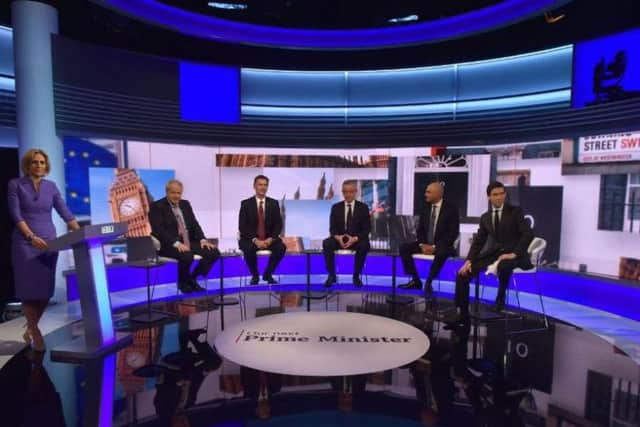Tory leadership race: The pitfalls of televised group mass debating
The former Foreign Secretary’s team have largely adopted a submarine strategy during the campaign so far, keeping their man out of limelight for fear that he will scupper his own chances by... speaking.
And the plan seems to have worked, with team Boris racking up overwhelming support from colleagues all deeply committed to their own careers, I mean delivering Brexit.
Advertisement
Hide AdAdvertisement
Hide AdBut impatient politics nerds were keen to see him take on his rivals face-to-face, in particular self-proclaimed outsider Rory Stewart.


The Eton and Oxford educated underdog who has absolutely, definitely never been a spy has adopted the opposite campaign strategy of talking constantly to everyone, from the most hardened hacks to unsuspecting members of the public just trying to have a quiet stroll in the park.
As for the others - Michael Gove, Sajid Javid and Jeremy Hunt - they have been collectively flat-lining, so expectations for them were low.
Alas they were not low enough, however, as the BBC’s debating format rendered the much-anticipated event an unpleasant shouting match.
Advertisement
Hide AdAdvertisement
Hide AdBoris was quiet, Rory disappointing, Gove and Hunt boring and Javid mostly unmemorable - aside from one inspired moment when he managed to bounce the unsuspecting group into agreeing to an Islamophobia probe into the Tory party.
Overall, the lack of an audience left the candidates with nobody to impress, so they instead squabbled amongst themselves.
For those watching, it was a depressing reminder that British politics is broken, and no one has a plan to fix it.